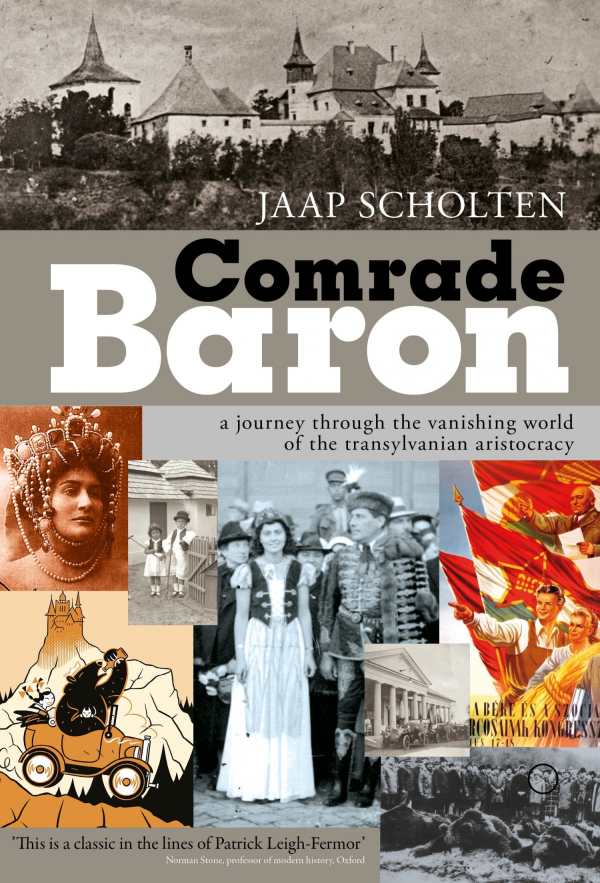Comrade Baron
A Journey through the Vanishing World of the Transylvanian Aristocracy
Jaap Scholten has done an extraordinary job of recording and presenting the stories of a persecution almost forgotten.
In Comrade Baron, Jaap Scholten explores a harrowing history little known in the English-speaking world. With a mixture of personal observation, sympathetic interviews, and astute historical analysis, he exposes the Romanian government’s cruel campaign against the aristocratic families of Transylvania between 1949 and 1989, when Nicolae Ceaușescu’s brutal dictatorship finally collapsed. “I want to write down the stories of a disappearing world,” he explains to a skeptical sister-in-law in the introduction. Those stories form a gripping and tragic tale.
In 1949, militia and secret police of the Socialist Republic of Romania simultaneously arrested over 7,800 members of the country’s aristocratic families. Some were tortured or sent to hellish prisons or labor camps. Others were released subject to “Domiciliu Obligatoriu,” a kind of lifelong house arrest. For decades afterward, the descendants of counts and barons lived a persecuted existence, spied upon and harassed by the dreaded Securitate, forbidden to travel, to educate their children beyond the elementary level, or to hold any but the most menial jobs. In a supposedly classless society, they became a downtrodden underclass.
Scholten’s involvement in the story is deeply personal: he is married to a descendant of one such family, and his relationship with the elderly survivors he interviews is admiring and respectful. The early memories gleaned from these interviews are arguably selective and sentimental, but they are delightful nonetheless: tales of beautiful mansions, courtly flirtations, and pet bears; glimpses of a remembered golden age seen through a rapidly closing window.
The horrors of the persecution that followed are all the more shocking in contrast. Scholten relates the survivors’ tales and supports those stories with visits to former prisons and labor camps, documenting their existence and the suffering of their inmates, as well as the everyday oppression of life as a “D.O.” In the final section of the book, he examines the fate of the survivors and their descendants in postcommunist Romania.
Jaap Scholten has done an extraordinary job of recording and presenting the stories of a persecution almost forgotten.
Reviewed by
Bradley A. Scott
Disclosure: This article is not an endorsement, but a review. The publisher of this book provided free copies of the book to have their book reviewed by a professional reviewer. No fee was paid by the publisher for this review. Foreword Reviews only recommends books that we love. Foreword Magazine, Inc. is disclosing this in accordance with the Federal Trade Commission’s 16 CFR, Part 255.

